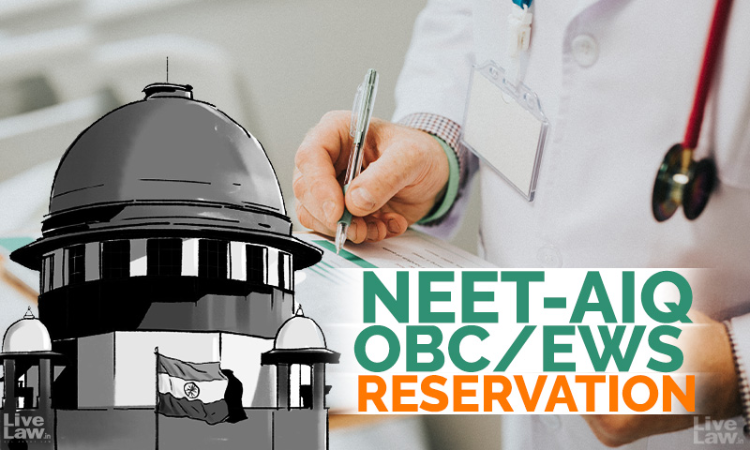Same Income Criteria For OBC & EWS Not Arbitrary; Rs 8 Lakh Limit Adopted After Due Deliberation : Centre Tells Supreme Court
Shruti Kakkar
26 Oct 2021 7:34 PM IST

Next Story
26 Oct 2021 7:34 PM IST
Pursuant to Top Court's order asking Centre to apprise the Court of the reasons for with its decision to adopt the criteria of annual income of Rupees 8 lakhs for determining the eligibility for Economic Weaker Sections ("EWS") in the NEET All India Quota, the Central Government today filed an affidavit justifying its stand.The Union Ministry of Social Justice and Empowerment said in...
